The 2025 Full Committee Meeting and Academic Exchange Conference of the Palliative Medicine Branch of the Chinese Geriatrics Society was successfully held
In September on the plateau, the wind is clear and the clouds are vast. Kunlun is the pen and the Three rivers are the ink. On September 6, 2025, the "Full Committee Meeting and Academic Exchange Conference of the Palliative Medicine Branch of the Chinese Geriatrics Society" was grandly held and successfully concluded at Qinghai Provincial People's Hospital, hosted by the Palliative Medicine Branch of the Chinese Geriatrics Society and organized by the hospital.
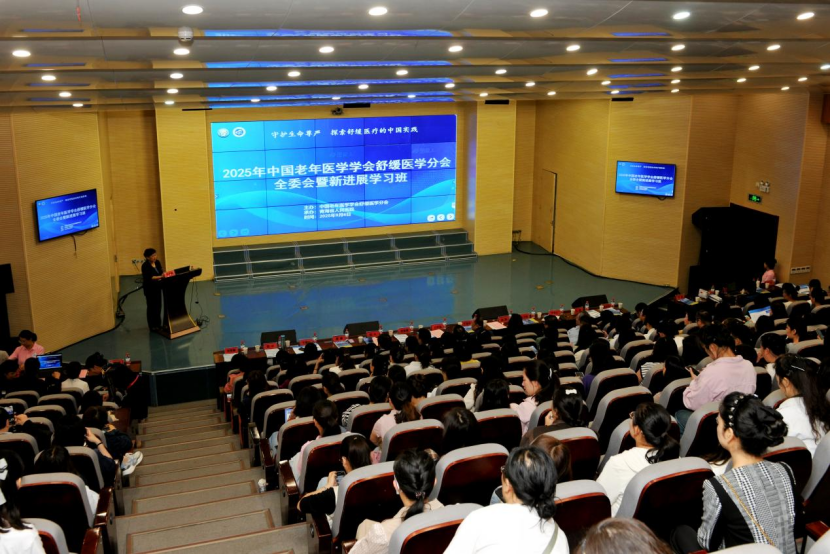
The conference, with the core theme of "Converging Wisdom and Sharing: Jointly Building the Future of Palliative Medicine for the Elderly", adopted a variety of forms such as academic lectures, expert discussions, and on-site visits to focus on the cutting-edge progress of palliative medicine both at home and abroad. It aims to further integrate clinical palliative medical concepts, enhance practical skills, and promote the high-quality development of palliative medicine discipline construction and talent cultivation in China. Contribute to enhancing the well-being of elderly patients.
1. Government, industry, academia and research gather on the plateau to jointly embark on a new journey of palliative medicine
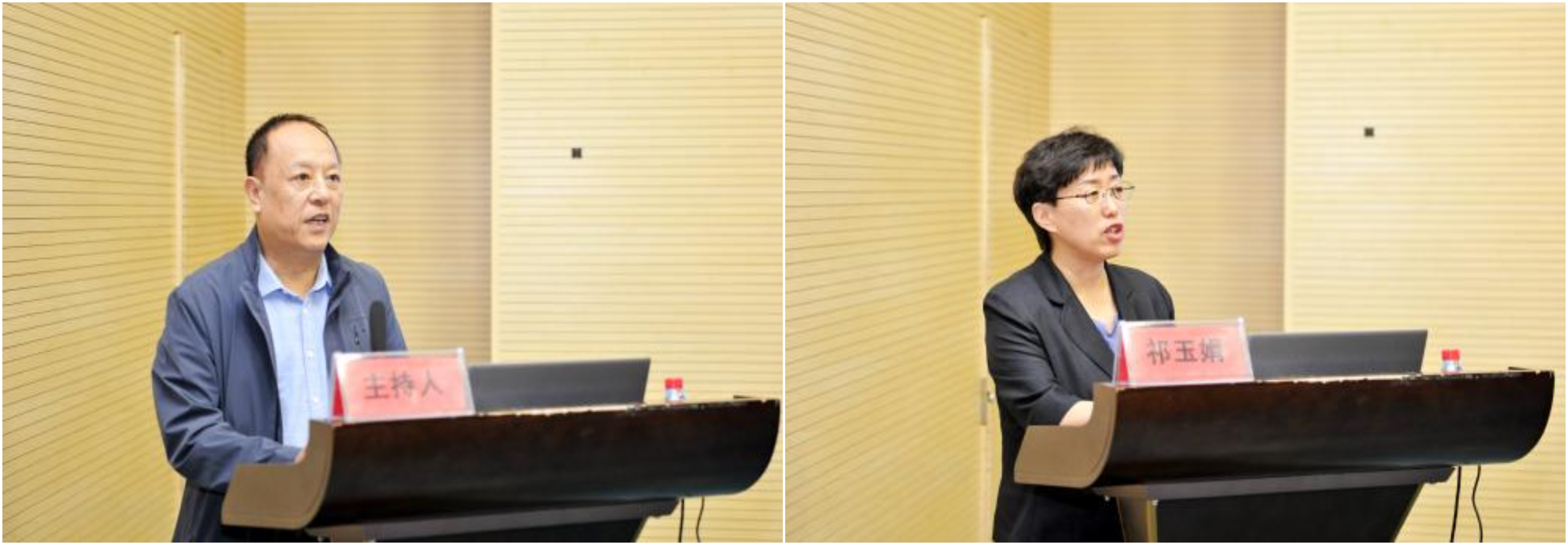
The opening ceremony of this conference was jointly presided over by Ding Zhiping, the deputy secretary-general of the Chinese Geriatrics Society, and Qi Yujuan, the vice president of Qinghai Provincial People's Hospital and the vice president of the Palliative Medicine Branch of the Chinese Geriatrics Society, who jointly kicked off the grand event. Five leaders, namely Cheng Zhi, Vice President of the Chinese Society of Geriatrics, Zhan Yiyang, President of the Palliative Medicine Branch, Sun Jing, Director of the Aging Health Department of the Health Commission of Qinghai Province, Nie Wei, Deputy Director of the Continuing Education Office of the Medical Association of Qinghai Province, and Zhong Lintao, President of the People's Hospital of Qinghai Province, attended the meeting and delivered speeches. They respectively discussed from the dimensions of the national aging strategy, discipline development plans, and local practical needs It expounded on the significant value of palliative medicine in safeguarding the health of the elderly and expressed earnest expectations for the convening of the conference.
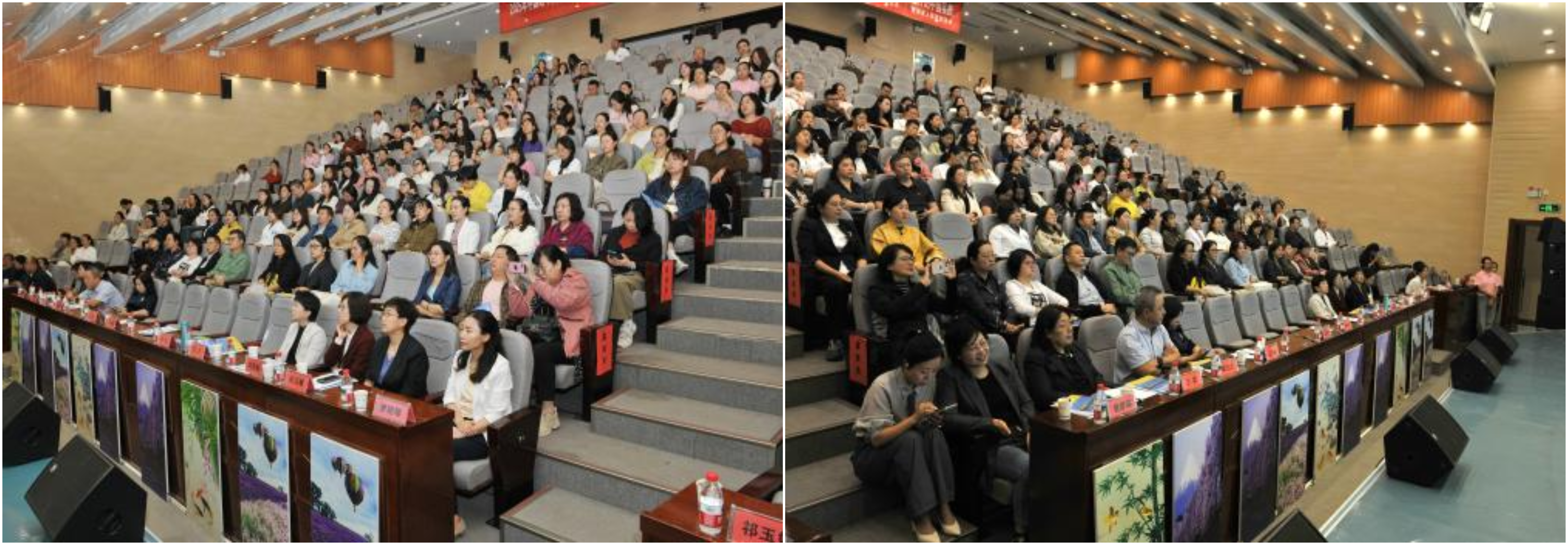
More than 200 experts, scholars and medical staff in the field of palliative medicine from multiple provinces and cities across the country, including Jiangsu, Beijing, Shanghai and Tianjin, gathered together. Experts and committee members from universities and medical institutions such as Nanjing Medical University and Jiangsu Provincial People's Hospital also came from afar. They engaged in intellectual exchanges and collisions through academic exchanges, adding more warmth to the golden autumn plateau with the humanistic touch of palliative medicine.
Focusing on the health issues of the elderly, palliative medicine is used to solve the problems of end-of-life security
Vice President Cheng Zhi delivered the opening speech
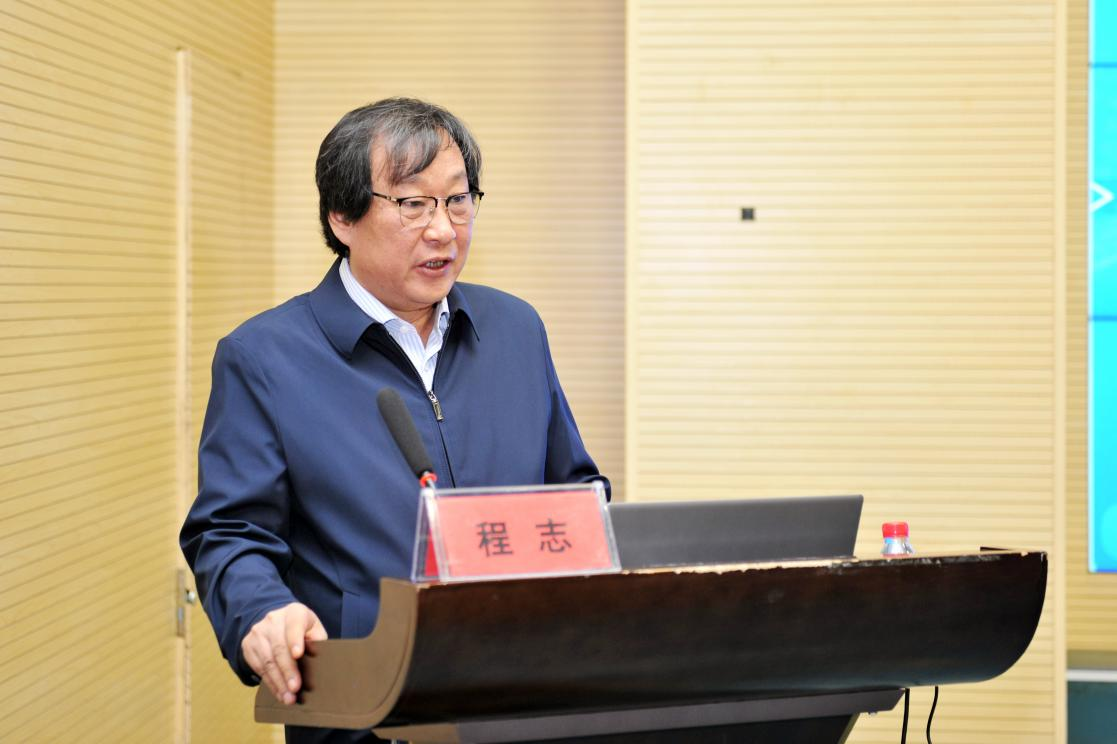
At the opening ceremony, Cheng Zhi, vice president of the Chinese Society of Geriatrics, delivered a speech, focusing on elaborating on the end-of-life health security for the elderly. He emphasized that in the process of advancing Chinese-style modernization, how to ensure that every elderly person can spend their final days with peace of mind, comfort and dignity has become an important health issue that must be effectively addressed. Vice President Cheng Zhi pointed out that palliative medicine is the key supporting discipline to solve this proposition. Its value is not only reflected in the symptom relief at the medical technology level, but also in the profound comfort to the patient's soul, serving as an important yardstick for measuring the degree of social civilization. He further advocated promoting the coordinated development of palliative medicine and general practice, working together to build a continuous, integrated and accessible elderly health welfare system, truly making the "last mile" of life a journey full of warmth and care, and providing a solid guarantee for the health and well-being of the elderly.
The opening ceremony of the congratulatory conference aims to promote the well-being of the elderly and draw up a blueprint for the development of palliative medicine with "three-dimensional support"
President Zhan Yiyang delivered a speech at the opening ceremony
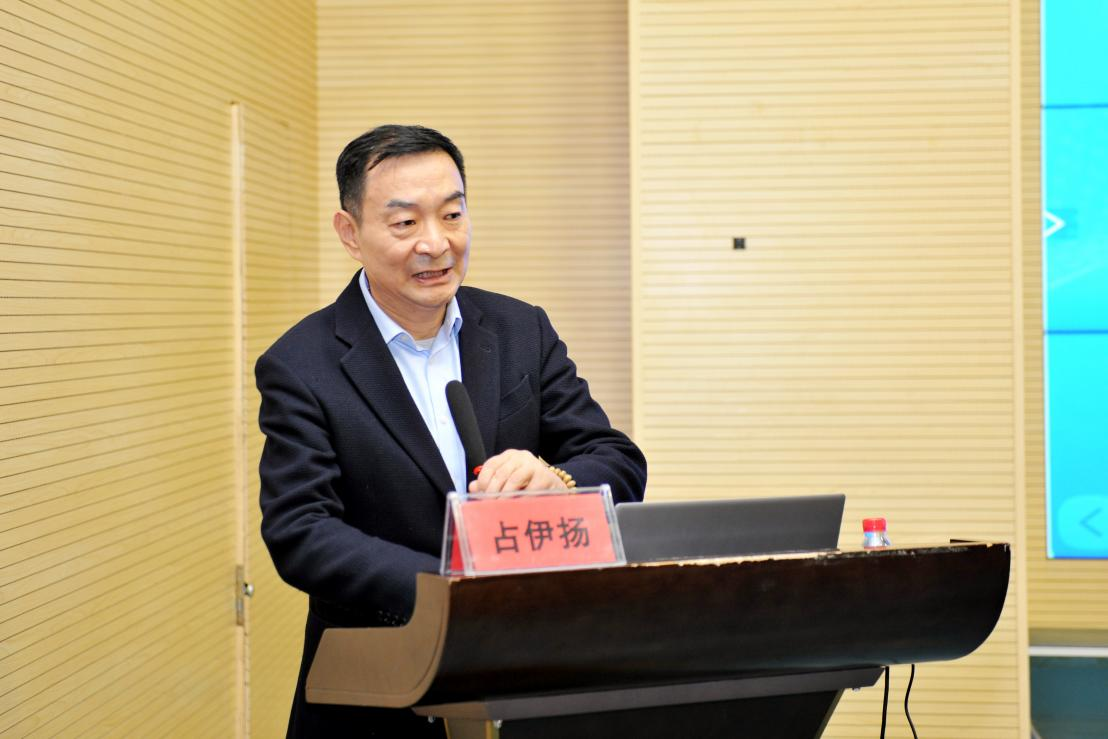
President Zhan Yiyang of the Palliative Medicine Branch of the Chinese Geriatrics Society delivered a speech, extending the warmest congratulations on the grand opening of this conference. He pointed out that China is currently in a stage of in-depth development of population aging. Palliative care has become an urgent need of The Times and a key area of people's livelihood that the Party and the state attach great importance to. President Zhan Yiyang emphasized that this conference, taking "sharing" as an opportunity, has built up three major development supports for palliative medicine: using science as wings to inject strong impetus into the industry's development; With culture as the foundation, it imparts profound depth into the construction of disciplines. With compassion as the measure, guide practitioners to fulfill their mission with great love in their hearts. He further hopes that in the future, the industry influence of geriatric palliative medicine can be continuously enhanced, allowing it to illuminate more corners like a "lighthouse". Bring the warmth of palliative medicine to every elderly person and promote "peace between life and death" to become a warm and touching humanistic landscape on the land of China.
Praise the academic feast, analyze the current situation in Qinghai, and promote the practical implementation of palliative medicine
Director Sun Jing delivered the opening speech
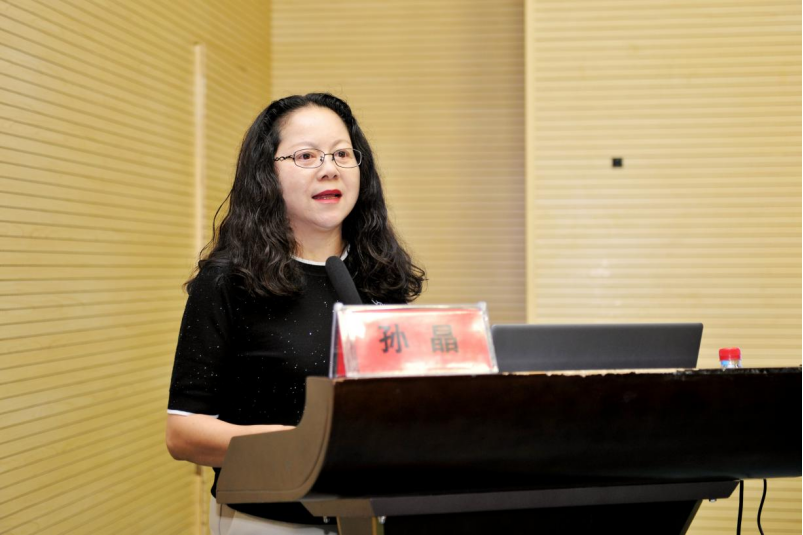
Sun Jing, Director of the Aging Health Division of the Health Commission of Qinghai Province, delivered a speech, fully affirming the convening of this conference and elaborating in detail on the development of palliative medicine and hospice care in Qinghai Province. She objectively pointed out that compared with advanced provinces and cities in China, Qinghai Province still has gaps in terms of professional talent reserves, service coverage and social recognition in the field of palliative medicine. At the same time, it is emphasized that this conference is not only a high-end academic feast in the field of palliative medicine across the country, but also a key opportunity to promote the high-quality development of elderly health services and palliative care in Qinghai Province. This further encourages the participants from our province to cherish the learning opportunity and effectively transform the new concepts and good practices conveyed by the conference into concrete actions to promote practical work. Help improve the local elderly health service system and enable palliative medicine to better benefit the elderly in high-altitude areas.
The warmth of medicine, with famous quotes and interpretations, clarifies the mission of medical practitioners in this era
Deputy Director Nie Wei delivered a speech at the opening ceremony
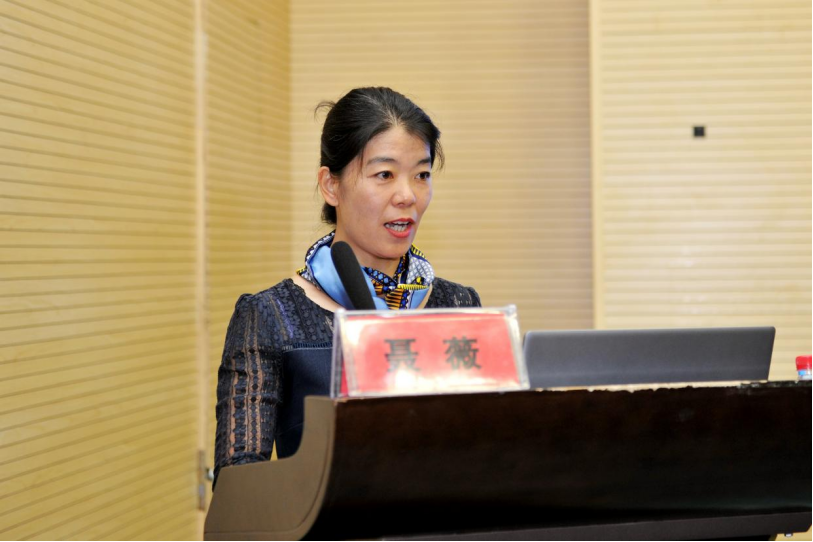
Nie Wei, deputy director of the Continuing Education Office of the Qinghai Medical Association, delivered a speech, elaborating in detail on the humanistic value of medicine, the significance of palliative medicine and the mission of medical practitioners. She pointed out that the warmth of medicine not only stems from the sophistication of technology but also lies in humanistic care. To more intuitively interpret the significant value of palliative medicine, Deputy Director Nie Wei quoted Mr. Trudeau's classic saying, "Sometimes to cure, often to help, always to comfort," to profoundly interpret the essence of palliative medicine, which is respecting life and caring for the soul. She emphasized that in today's society, how to enable the large elderly population to enjoy a healthier, more dignified and higher-quality life in their later years is not only a focus of concern for all sectors of society, but also a mission of The Times shouldered by every medical and health worker.
Describe the hospital's positioning, discuss practical measures, and look forward to the conference empowering development
President Zhong Lintao delivered the opening speech
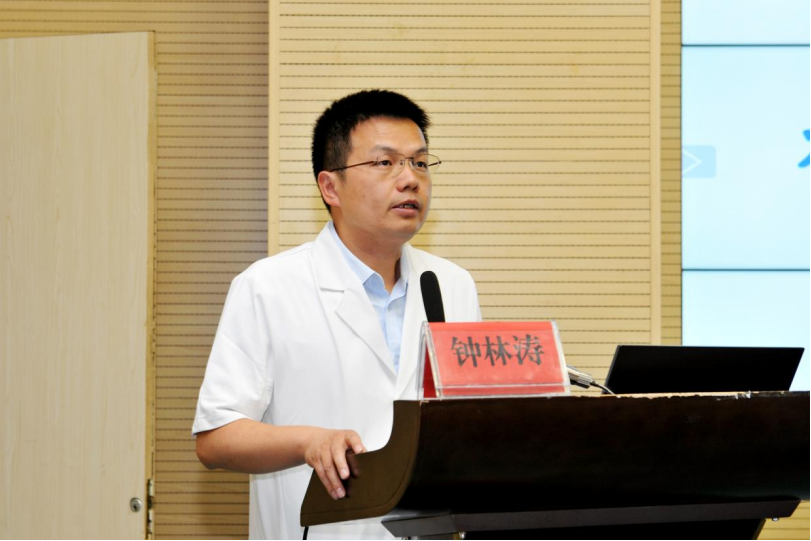
In his speech, Zhong Lintao, the president of Qinghai Provincial People's Hospital, emphasized that as a century-old hospital on the plateau, the hospital has always regarded the development of elderly health services and palliative medicine as the core responsibility for fulfilling its public welfare mission. In response to the accelerated aging process on the Qinghai Plateau and the urgent need for quality of life among elderly patients with terminal chronic diseases, the hospital has focused on the field of palliative medicine for many years. It has proactively responded to these demands through talent cultivation, integrated collaboration between medical staff and nurses, and the construction of characteristic disciplines. Since the establishment of the palliative care team under the leadership of Professor Zhao Shengxiu, a scholar from Qinghai, in 2015, with the joint efforts of all departments in the hospital, the service goal of allowing patients in the terminal stage to feel dignity and warmth has been achieved. At the same time, President Zhong Lintao also frankly admitted that the development of palliative medicine in plateau areas still faces the challenge of geographical restrictions, and he looks forward to this conference injecting new vitality into the progress of palliative medicine in Qinghai Province.
Second, experts decode core issues to illuminate the development direction of palliative medicine
The conference specially invited several leading experts in the field of palliative medicine to give keynote speeches. From five dimensions including consensus interpretation, practice and innovation, system construction, communication skills, and scientific research transformation, they provided the "golden key" for the development of the industry and helped solve the key problems in the practice of palliative medicine.
Professor Ning Xiaohong: Consensus Leadership, Establishing the "Chinese Standard" for Palliative Medicine
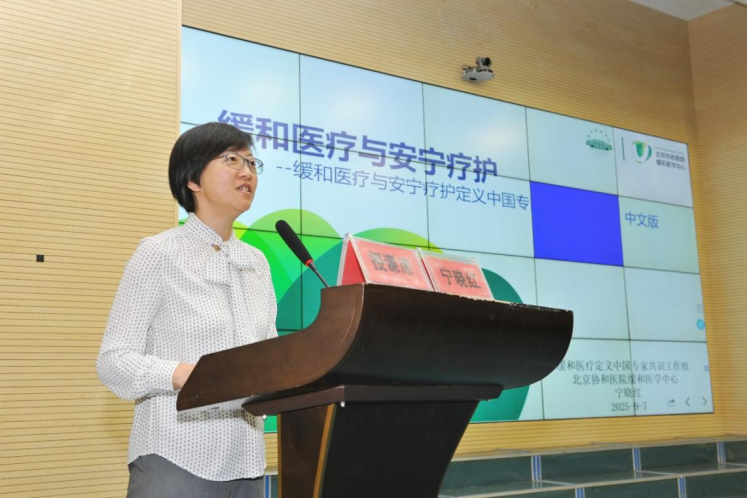
Professor Ning Xiaohong, director of the Center for Palliative Medicine at Peking Union Medical College Hospital, kicked off the academic sharing session with the title "Chinese Expert Consensus on Defining Palliative Care and Hospice Care (2025)". She spent 30 minutes systematically interpreting the core content of the consensus and proposed to end the ten-year chaotic period of "individual expression" in the industry through three dimensions: "unified terminology, unified assessment, and unified quality control". In the report, Professor Ning, in light of the aging process in China and the current ranking of the quality of life of the elderly, expounded on the connotation of palliative care from multiple dimensions such as symptom control, social support, psychological and spiritual care, doctor-patient communication, and family support. He emphasized that "what truly works is not the knowledge in the mind, but the heart of the doctor to alleviate the patient's pain," profoundly interpreting the humanistic core of palliative medicine.
Professor Qi Yujuan: Rooted in the Plateau, Creating a "Distinctive Model" for Palliative Care in Qinghai
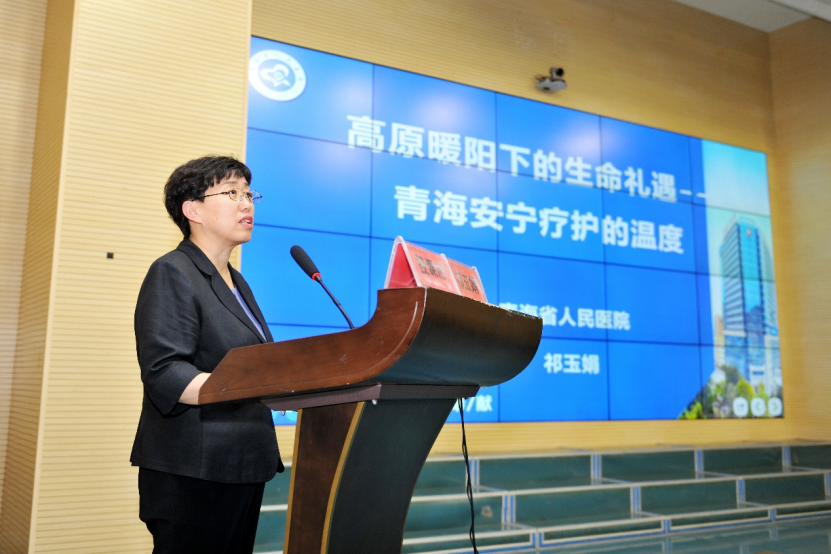
Professor Qi Yujuan, the vice president of Qinghai Provincial People's Hospital, shared her practical experience in palliative medicine in the plateau region under the title "Life Greetings in the Warm Sun of the Plateau - The Temperature of Palliative Care in Anning, Qinghai". As a leader in the development of palliative medicine in Qinghai, she elaborated on the current status of palliative care in the province, the urgent needs of the elderly population, and the phased achievements of Qinghai Provincial People's Hospital in palliative medicine, the establishment of palliative care organizational structure, the improvement of system standards, the coverage of service systems, and the cultivation of professional talents. Meanwhile, Professor Qi objectively analyzed the constraints on the development of palliative medicine in Qinghai Province due to the distribution of resources and regional differences, and proposed the future direction of exploring a "plateau characteristic palliative care model", striving to let the "warm sun" of palliative medicine shine upon every patient in need on the plateau.
Professor Jiang Sunfang: Empowering with Scientific Research, Exporting the "Shanghai Solution" for Community Hospice Care
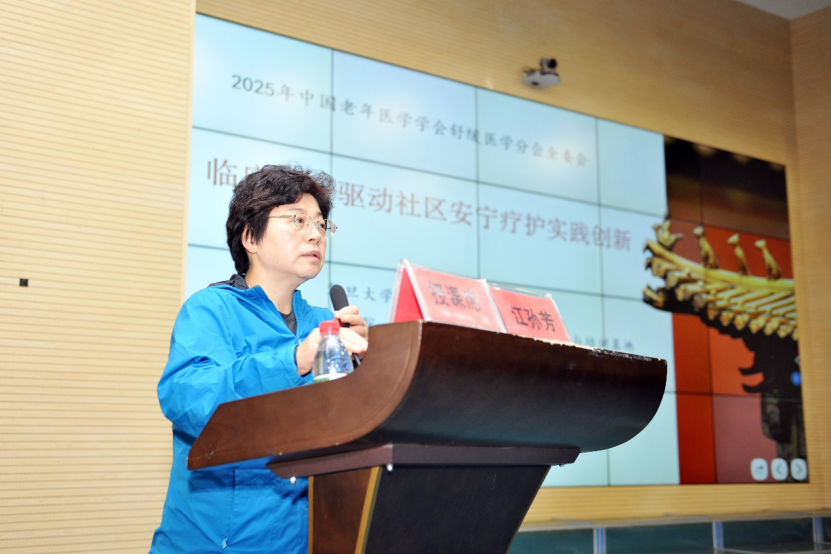
Professor Jiang Sunfang from Zhongshan Hospital Affiliated to Fudan University delivered a report titled "Clinical Research Drives Innovation in Community Palliative Care Practice", sharing the practical experience of community palliative medicine in Shanghai. She proposed a "small, fast and flexible" research approach: first, build a prediction model for the survival period of ≤90 days in Shanghai communities (with blood pressure, PPS, pain and white blood cells as the four core indicators), and then collaborate with 16 industry experts to formulate the "4-dimensional 63-point" access standards for hospice wards, forming a replicable and implementable "Shanghai solution" for community hospice care.
Professor Liu Dongying: Focusing on Cancer Pain in the Elderly, In-depth Analysis and Wonderful Sharing
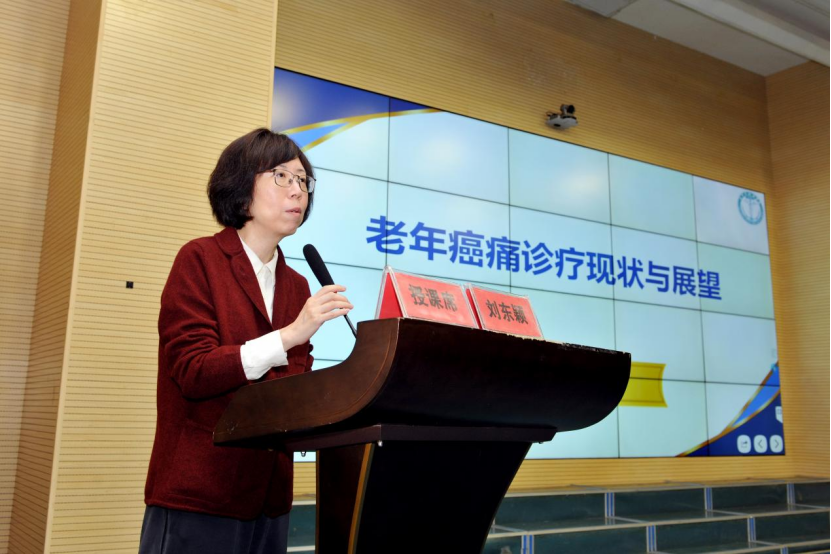
Professor Liu Dongying from the Cancer Hospital of Tianjin Medical University shared "The Current Situation and Prospects of Diagnosis and Treatment of Cancer Pain in the Elderly". The epidemiology, clinical characteristics, diagnosis and treatment status of cancer pain in the elderly were analyzed in a simple and understandable way, and the assessment, treatment methods, nursing education and follow-up work of cancer pain were introduced in detail. The teaching content was well-structured and logically rigorous. The wonderful explanations significantly enhanced the audience's understanding of cancer pain.
Professor Zhou Zhi: Unify concepts and strengthen discipline construction
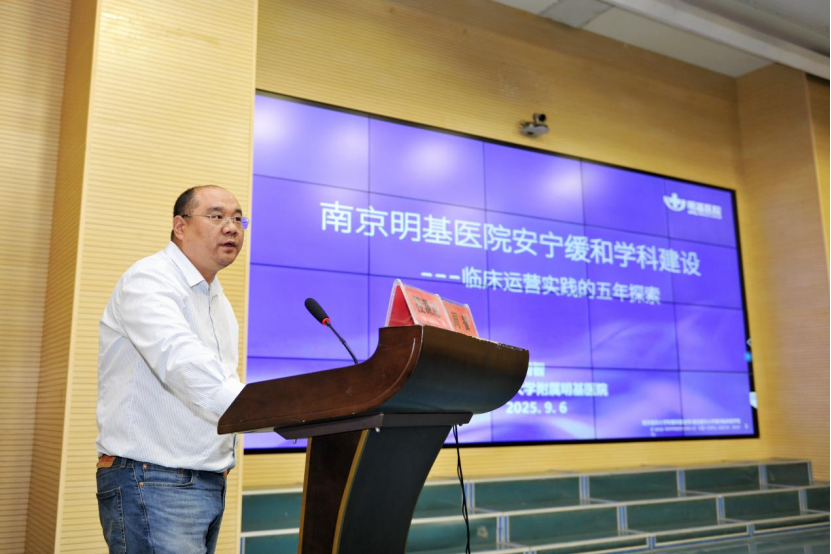
If chemotherapy and radiotherapy aim to prolong the length of life, then palliative care is dedicated to expanding the width of life. This statement, made by Professor Zhou Zhi from Nanjing BenQ Hospital, is weighty and resounding. Professor Zhou Zhi shared the experience of the Discipline Construction of the Department of Palliative Medicine at Nanjing BenQ Hospital. From the perspectives of discipline construction and personal experience, he comprehensively expounded the core concept of palliative care - not only pursuing the extension of life, but also focusing on improving the quality of the terminal life. He elaborated in detail on how to effectively integrate palliative care with various means such as chemotherapy, radiotherapy, psychotherapy, and hospice care, so that every life can complete its journey with the least pain and the greatest dignity.
Professor Duan Yu: Systematic review and construction of the "Four-dimensional Five-Mode" core framework
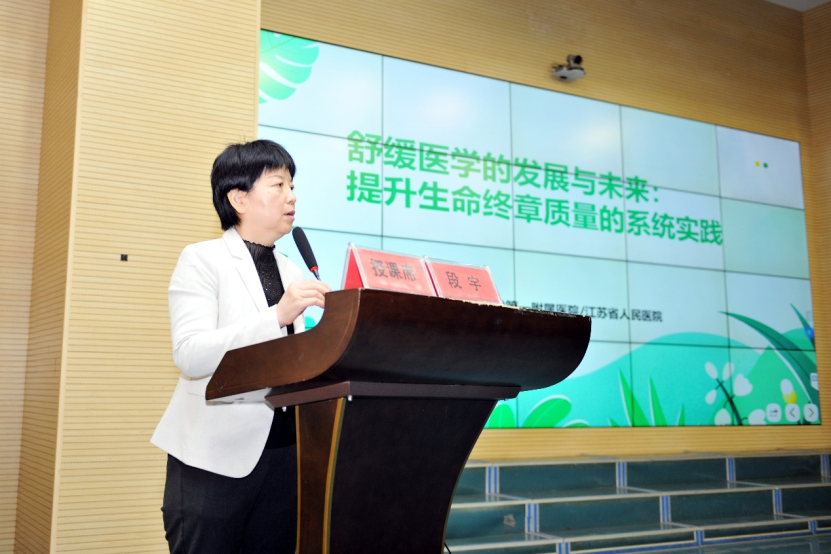
Professor Duan Yu from the First Affiliated Hospital of Nanjing Medical University (Jiangsu Provincial People's Hospital) in his report titled "The Development and Future of Palliative Medicine" sorted out the development process of palliative medicine along the thread of "ancient and modern - domestic and foreign - future", and proposed a core practical framework: The "Body, Mind, Spirit and Society" four-dimensional intervention, combined with the "outpatient - inpatient - community - home - co-care" five-dimensional model, provides a reference for palliative care in different regions and at different levels of medical institutions.
Professor Wang Yumei: Communication as a bridge, enhancing the Quality of palliative care
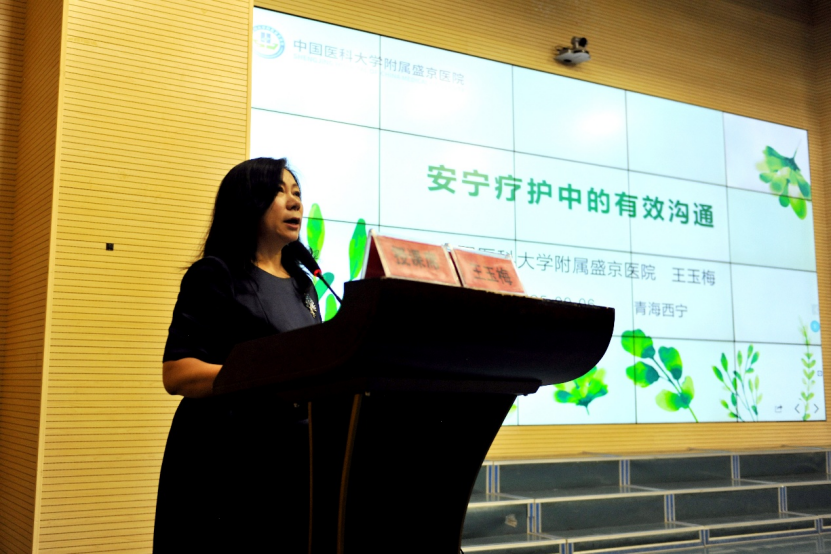
Professor Wang Yumei from Shengjing Hospital Affiliated to China Medical University delivered a lecture titled "Effective Communication in Palliative Care", focusing on the core clinical pain point of "communication". She elaborated on the art of communication from aspects such as the skills of informing patients of their conditions, the methods of shared decision-making between doctors and patients, and the handling of patients' emotional responses, drawing on over a decade of practical experience. Professor Wang's initiative to incorporate communication skills into the quality control indicators of palliative care has benefited tens of thousands of end-stage patients and their families, providing significant support for improving the quality of palliative care.
Professor Zhu Qiong: The Four-All Care Model promotes diversified community services
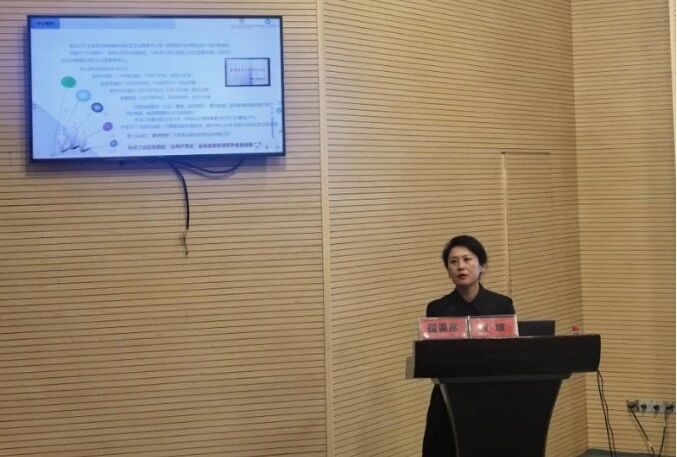
Professor Zhu Qiong from Kangjian Community Health Service Center in Xuhui District, Shanghai, systematically introduced the hospice care team and its multi-disciplinary service model under general practice through her presentation titled "Community Practice Based on the Multi-Disciplinary Team Service Model of Palliative Care under General Practice". Palliative care has gradually developed into a diversified service system covering clinical medicine, nursing, social work services, bioethics, sociology, and artistic and humanistic care, meeting the needs of patients in physical, psychological, social and spiritual aspects, and fully demonstrating the four-all care model of modern palliative care.
Professor Cao Feng: Sharing exploration and practical experience to guide the development of disciplines
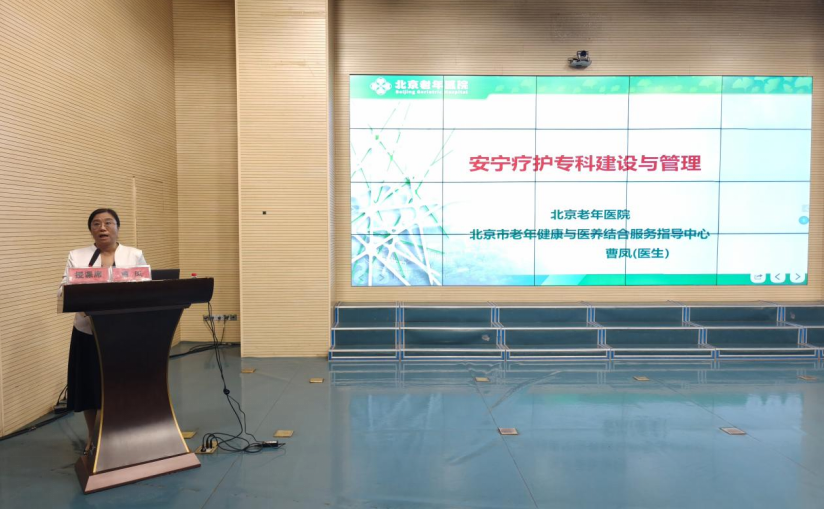
Professor Cao Feng from Beijing Geriatric Hospital, in her presentation "Preliminary Exploration of the Construction of Palliative Care Discipline", conducted a comprehensive analysis of the advantages, disadvantages, opportunities and threats of palliative medicine from multiple aspects. She also shared her experiences in the hospital's discipline construction, talent team, scientific research and teaching, as well as operation and management, which has significant guiding significance for the future development and planning of palliative medicine in Qinghai.
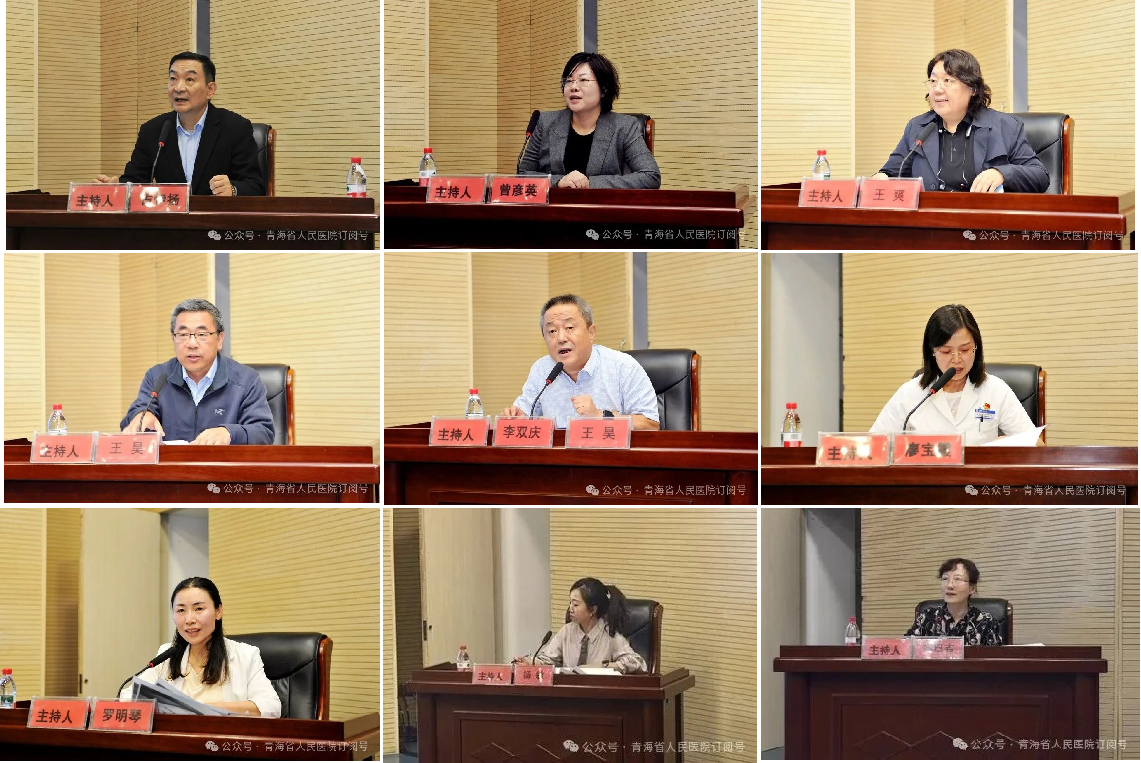 A glimpse of the host expert
A glimpse of the host expert
Iii. Plenary Session: Strengthening the Organizational Foundation and Clarifying the Direction of the Meeting
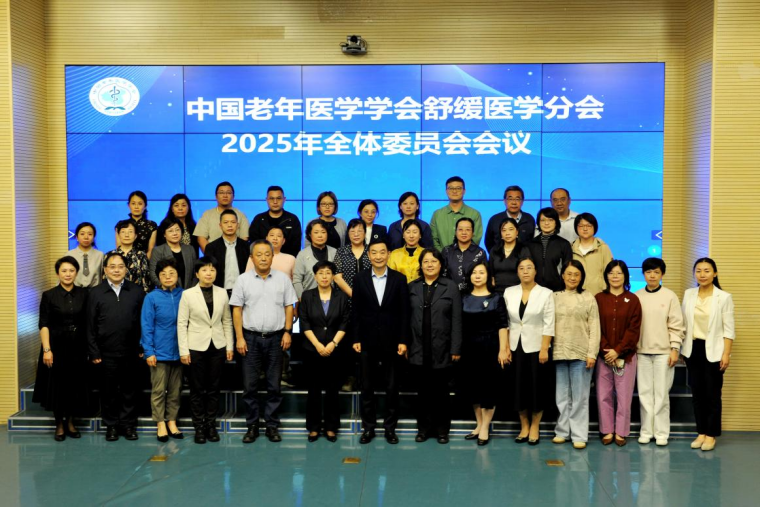
During the conference, the full committee of the Palliative Medicine Branch of the Chinese Society of Geriatrics was held simultaneously. The meeting continued the regular mechanism of "regional rotation to host the annual conference". Representatives from each rotating region systematically reported on the highlights and practical achievements of their work in the first half of 2025, providing references for the overall work optimization of the branch. At the same time, complete the supplementary procedures for the standing committee members and committee members of the branch, further strengthen the organizational strength, and once again reaffirm the discipline of the society and enhance the awareness of norms among the committee members. It was made clear at the meeting that the "2026 Plenary Session of the Palliative Medicine Branch of the Chinese Society of Geriatrics" will be held in Henan Province, laying a solid foundation for the orderly preparation of subsequent activities of the branch.
Iv. On-site Study Tours: Deepen Practical Cognition and consolidate consensus on Discipline Construction
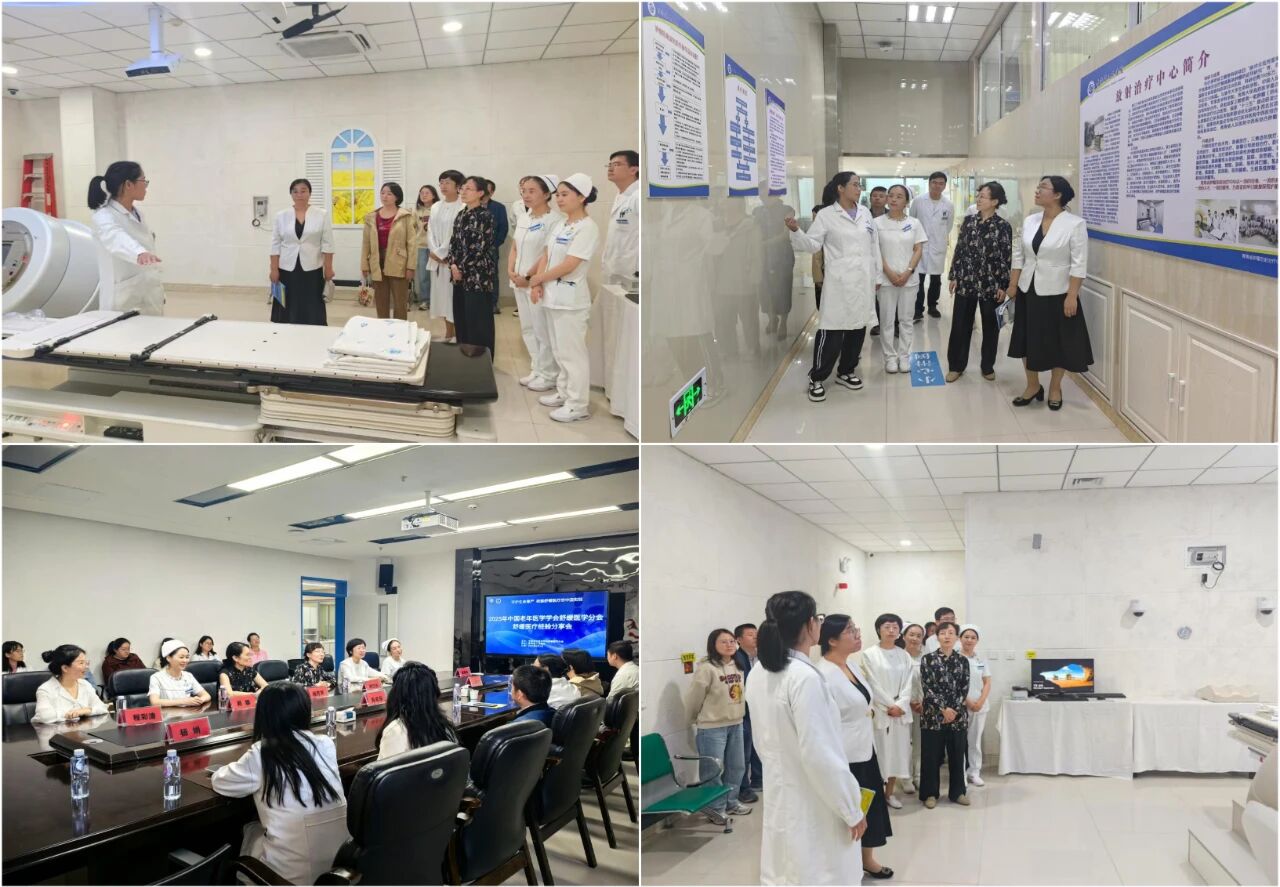
To promote the in-depth integration of theory and practice, the organizers organized all the committee members and participants to visit the palliative care ward of the Geriatrics Department and the pain ward of the Oncology Department of Qinghai Provincial People's Hospital for on-site visits, and held a special symposium. During the visit, the representatives gained a thorough understanding of the construction of ward facilities, the standardization of service processes, and the details of patient care. At the symposium, participants engaged in in-depth discussions on topics such as the construction of the discipline of palliative medicine, the improvement of the service system, the cultivation of talent teams, and the transformation of scientific research and innovation. They put forward many constructive suggestions to guide the solid implementation and advancement of palliative medicine.
V. Pooling Wisdom and Strength to Jointly Draw a New Blueprint for Geriatric palliative Medicine
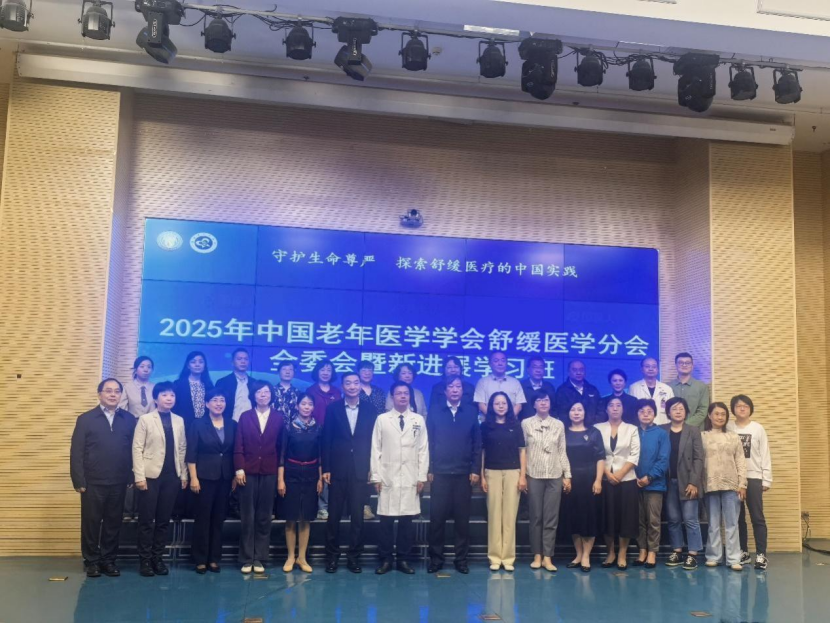
The successful holding of this conference not only established a high-level academic exchange platform for the field of palliative medicine in our country, but also gathered the strength of the entire industry and clarified the development direction of the discipline. From consensus definition to regional practice, from system construction to scientific research transformation, the achievements of the conference will provide important support for promoting the standardization and professionalization of the discipline of palliative medicine in China, and contribute more to improving the quality of life of elderly patients and safeguarding their dignity. In the future, the Palliative Medicine Branch of the Chinese Society of Geriatrics will continue to play the role of a bridge and link, promoting the integration of more high-quality resources and practical innovation, and jointly writing a new chapter in the development of palliative medicine for the elderly.
Prev
Consultation Letter for the 2025 Hematology Precision Medicine Conference and Transplantation Infection Conference of the Hematology Branch of the Chinese Geriatrics Society
Next
The 2025 Academic Conference of the Emergency Medicine Branch of the Chinese Geriatrics Society was successfully held

